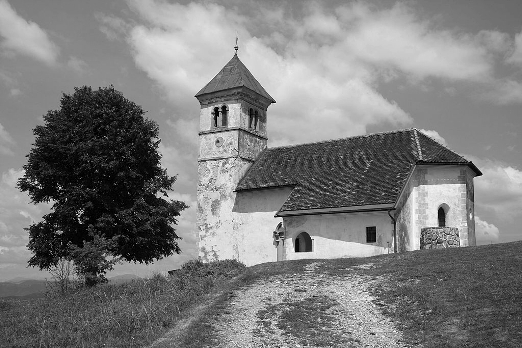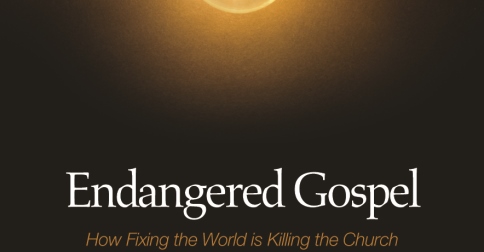Several weeks ago, The Atlantic ran a much-discussed article on the high cost of seminary, amidst the struggling economy of churches. The article reminded us of a question that John and I have been getting often as we are out on the road talking about Slow Church:
How can our church afford to be guided by a Slow, “Small is beautiful” philosophy when the economic pressure — either from denominations or from the personal load of debt that our pastors bear — is driving us to take the tempting shortcuts of “fast church”?
Let me begin by saying that we don’t have any easy solutions to this problem, but we do value both theological education AND a slow life together that prefers a deeper life together to simply growing in numbers. Furthermore, we do think that it is possible to do both of these things, provided that we have some economic imagination. And finally, we believe that conversation is the way forward, whether we face everyday challenges or complex issues like this one.
So… We would like to host a conversation about the economics of local congregations and theological education.
Our friend Justin Barringer, who was featured in The Atlantic article, will be doing a series of three guest posts here to kick-off this conversation and we will see where it goes from there. Justin’s first post will appear tomorrow, but I wanted to preface this conversation with two pertinent thoughts of my own.
First, one of the points we emphasize in the Economy section of the Slow Church book is that — especially in economically challenging times — there is need for a hearty economic imagination in our churches. I recently wrote a piece for OnFaith that explored this point. I wrote there that:
For churches, the distinction between living in abundance and living in scarcity often revolves around the practice of gratitude — or lack thereof. Are we thankful for the gifts that God has given us in our members, our facilities, our land, our neighbors and the institutions and other assets of our neighborhoods? And are we gratefully seeking ways in which these gifts could be offered willingly toward the health and flourishing of our congregation and the neighborhood? Theologian and social activist Mary Jo Leddy asserts in her important book Radical Gratitude that the “choice to affirm that there is enough for all is the beginning of social community, peace, and justice. The option to assume that there is enough frees the imagination to think of new political and economic possibilities.”
Indeed, new economic possibilities are much needed in many churches today, and some are beginning to trust in the abundance of God’s provision for creation.
One economic area that churches particularly need a renewed imagination and creativity about, as The Atlantic article emphasized, is the practice of bi-vocational ministry. All too often, economic pressure — from the congregation or from themselves — drives pastors into bi-vocational ministry, and the urgency is so great that in many cases the 2nd (or 3rd) job that the pastor takes on has little or nothing to do with the mission of the church, and only serves to fragment the life and health of the pastor, as well as the church. If our church struggling to pay our pastor(s), then might we not have some imagination to start some profit-generating initiative that is tightly bound with the mission of the church in our neighborhood? Some churches start coffeehouses, or restaurants, or bookstores. Perhaps some space in our church building could be rented as office or meeting space. Our pastor at Englewood Christian Church almost certainly devotes more of his energy to administrative work related to our daycare/pre-school and our community development non-profit than he does on traditional pastoral work. Food-trucks, farming, counseling, teaching, the possibilities are endless. What are the skills and passions of our pastor (and others in our congregation who could assist with a possible initiative) and how do they intersect opportunities that arise in our neighborhood? I am hopeful that if we are willing to devote ourselves to the work of sharing together deeply in the life of our local church, and if we have a smidge of imagination that can see possibilities outside “the way we’ve always done things,” then we can handle just about any economic challenge that might come our way, from seminary debt to church buildings in disrepair and so on.
The other opening thought that I want to offer is the challenge for us all — pastors and laity — to raise the theological bar for our whole congregations. This challenge is vital to sustaining the sort of congregational conversations that John and I describe as the center of Slow Church life. Read and discuss challenging books together as a congregation, and when you get to parts that don’t make sense work slowly and make sure everyone is tracking as you move forward. At Englewood, we have read books by many theologians and scholars including Gerhard Lohfink, John Howard Yoder, Lesslie Newbigin, and more recently Alasdair Macintyre. Yes, these books can be difficult, and yes, most of the people in our congregation probably wouldn’t have read these books if they weren’t prompted to, but we have benefited richly from our reading together.
Raising the theological bar, first of all, encourages us to not be mere consumers of religious services, but to be engaged participants in the life of the church community. Second of all, it helps us recognize the rich value of having one or more people in our congregation who do have some formal theological training, and can guide us to theological works that are strikingly pertinent to the particularities of our context and can help us make our way together through complicated passages in these books. This recognition will help us be willing to make sacrifices to help fund to the theological education of promising young scholars, and also perhaps to help shoulder the seminary debt of existing pastor(s). A third effect of this practice might be that more of our congregation would be willing to take occasional classes or seminars from local seminaries. Part of the economic crisis we face in regard to seminary debt is that seminaries are in at least as tight economic straits as churches, if not tighter ones! If churches begin to be more engaged with seminaries, sending members to classes/seminars and contributing appropriately for this training, then not only does that influx of funding help to make seminaries more sustainable, it hopefully would, over time, help to gradually shrink the cost of MDiv and other pastoral degrees. I know there that there are some assumptions here, and seminaries will have to be as imaginative and flexible economically as churches, shifting, as many already are, to new and different kinds of students and models of theological education.
What other sorts of economic convictions and practices we will need in our churches and seminaries in order to navigate these trying economic times?













